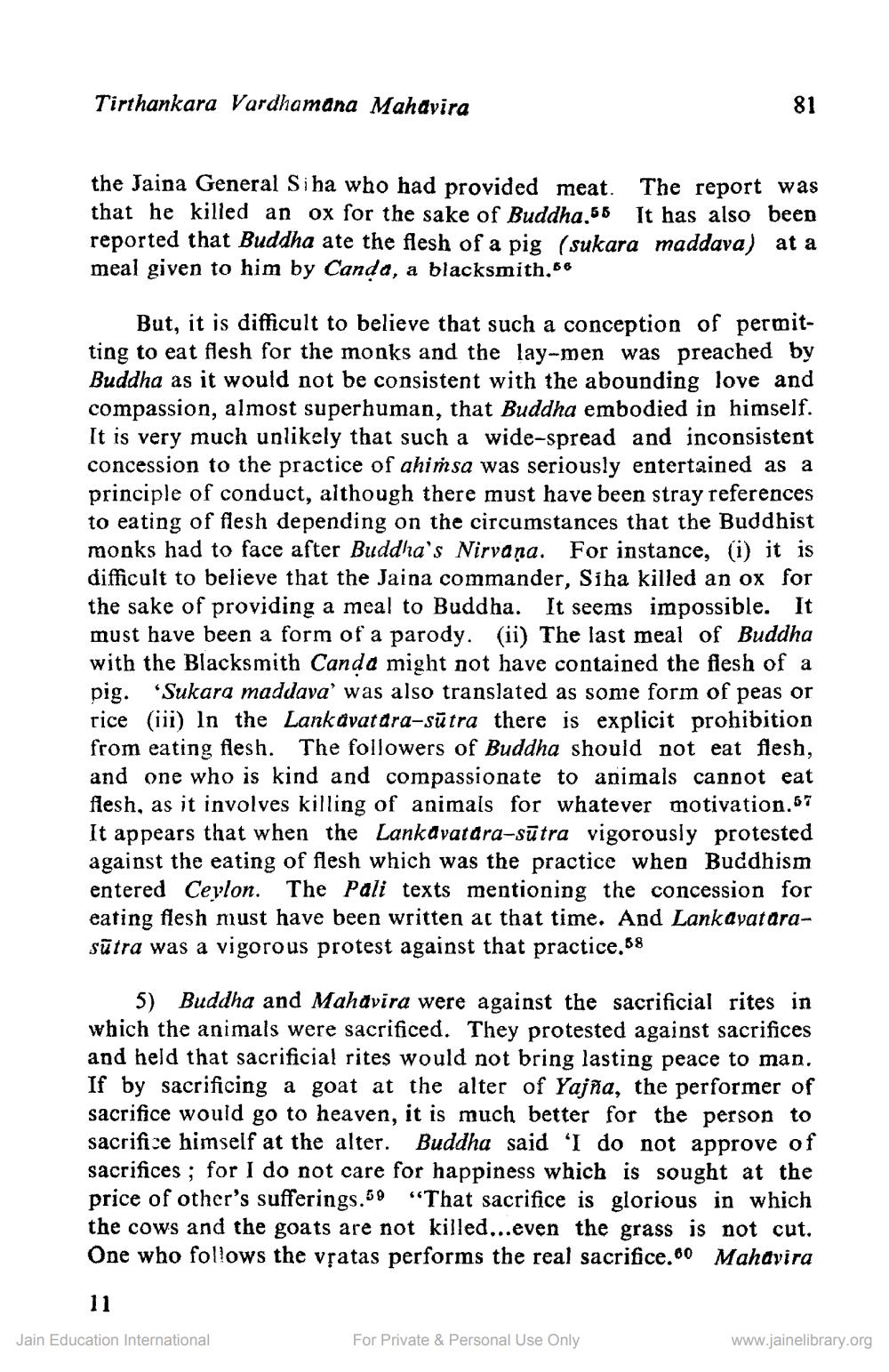________________
Tirthankara Vardhamana Mahavira
81
the Jaina General Siha who had provided meat. The report was that he killed an ox for the sake of Buddha.58 It has also been reported that Buddha ate the flesh of a pig (sukara maddava) at a meal given to him by Canda, a blacksmith.se
But, it is difficult to believe that such a conception of permitting to eat flesh for the monks and the lay-men was preached by Buddha as it would not be consistent with the abounding love and compassion, almost superhuman, that Buddha embodied in himself. It is very much unlikely that such a wide-spread and inconsistent concession to the practice of ahimsa was seriously entertained as a principle of conduct, although there must have been stray references to eating of flesh depending on the circumstances that the Buddhist monks had to face after Buddha's Nirvana. For instance, (i) it is difficult to believe that the Jaina commander, Siha killed an ox for the sake of providing a meal to Buddha. It seems impossible. It must have been a form of a parody. (ii) The last meal of Buddha with the Blacksmith Canda might not have contained the flesh of a pig. 'Sukara maddava' was also translated as some form of peas or rice (iii) In the Lankavat dra-sūtra there is explicit prohibition from eating flesh. The followers of Buddha should not eat flesh, and one who is kind and compassionate to animals cannot eat flesh, as it involves killing of animals for whatever motivation.67 It appears that when the Lankdvatdra-sūtra vigorously protested against the eating of flesh which was the practice when Buddhism entered Ceylon. The Pali texts mentioning the concession for eating flesh must have been written at that time. And Lankavatarasūtra was a vigorous protest against that practice.58
5) Buddha and Mahavira were against the sacrificial rites in which the animals were sacrificed. They protested against sacrifices and held that sacrificial rites would not bring lasting peace to man. If by sacrificing a goat at the alter of Yajña, the performer of sacrifice would go to heaven, it is much better for the person to sacrifice himself at the alter. Buddha said 'I do not approve of sacrifices; for I do not care for happiness which is sought at the price of other's sufferings.59 "That sacrifice is glorious in which the cows and the goats are not killed...even the grass is not cut. One who follows the vșatas performs the real sacrifice.60 Mahavira
11
Jain Education International
For Private & Personal Use Only
www.jainelibrary.org




